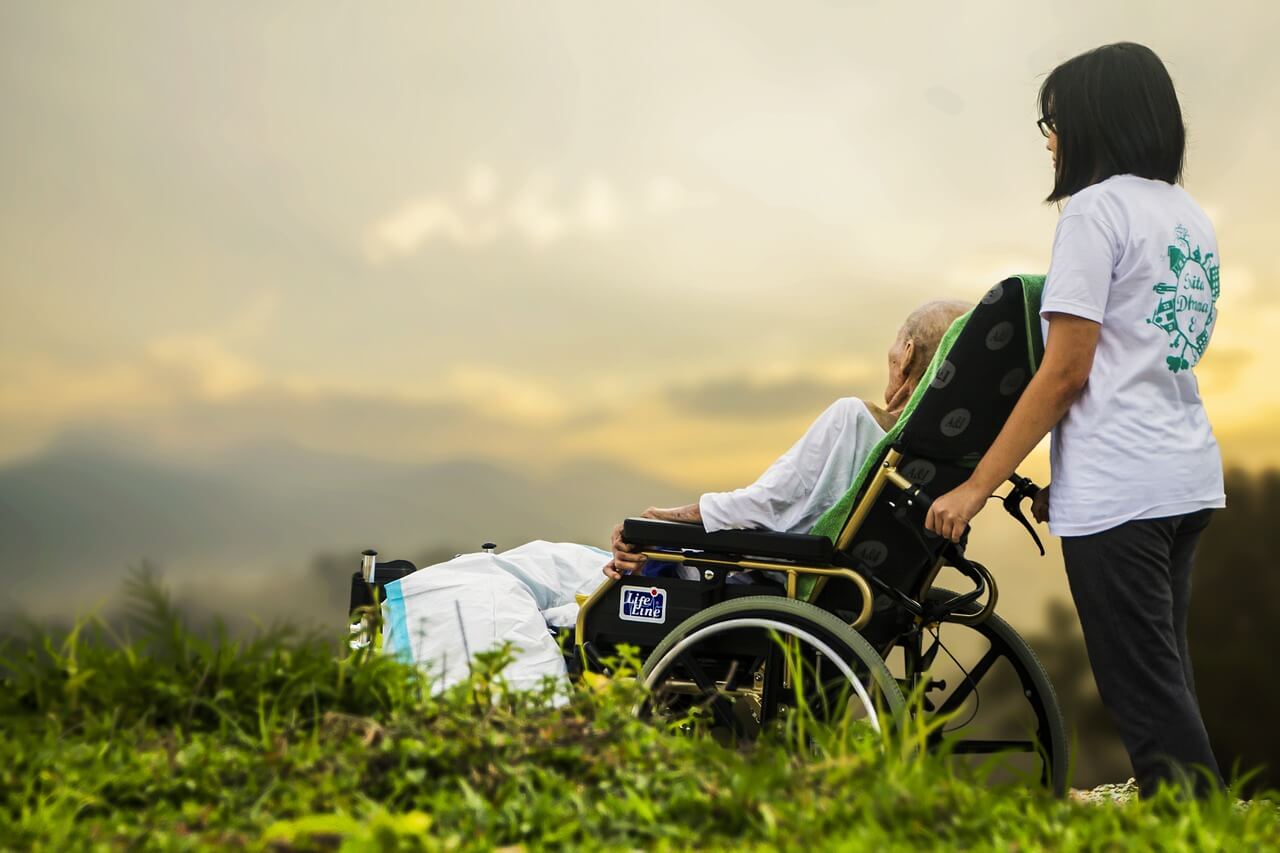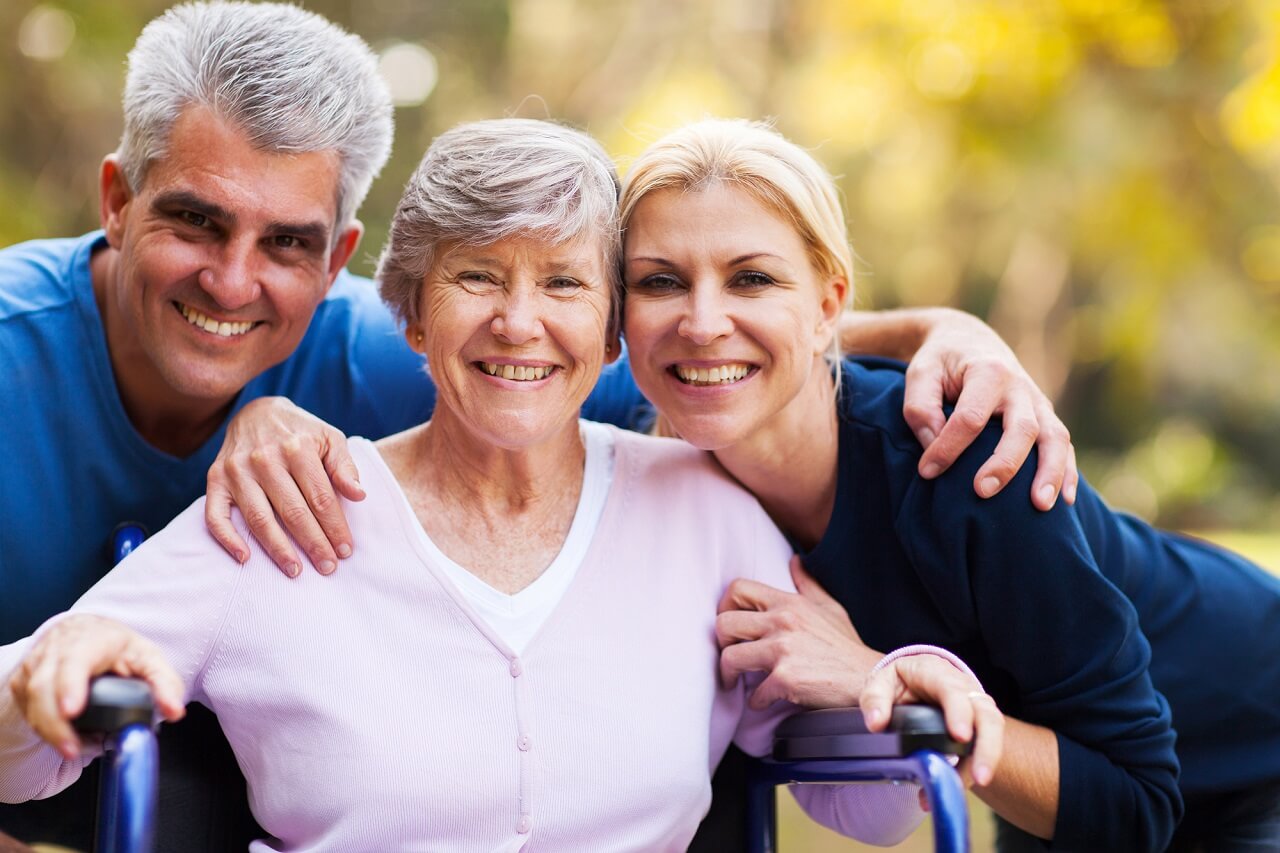Elderly companions provide non-medical care, assistance and companionship to elderly persons.
An elderly companion is a great choice for families that need a bit of help taking care of their loved one, but don’t need the services of a fully trained medical carer.
Because it doesn’t require any kind of training or even a college degree, anyone can become a companion for the elderly as long as they have a clean criminal record and meet other requirements the companion provider company may have.
Companion vs. Carer: What’s the Difference?

A lot of times when people talk about elderly care, they are referring to medical care.
Medical carers are trained professionals who provide help with things like bathing, dressing, health monitoring (temperature, blood pressure etc), administering medication, and basic grooming.
These are demanding tasks that require someone who is trained to carry them out safely.
But your loved one may not yet need a carer. If they are still fairly mobile, they don’t have serious medical conditions, and still retain plenty of independence, then a companion may be a better choice.
It’s also cheaper to hire a companion compared to a medical carer.
What Does a Companion Do?
The main role of an elderly companion is to provide companionship and non-medical assistance around the home.
One of the biggest challenges facing seniors is loneliness. With age, it gets harder to socialise with people and this can negatively affect their physical and mental health.
A companion can fill that gap. A companion provides friendship. They spend time with a senior, talk with them, watch movies together, go on walks, and play games among other activities.
Depending on a particular job requirement, a companion will have certain additional roles.
- Providing basic grooming.
- Medication reminders (but not administration). A companion may also need to pick up prescription medication.
- Doing various chores around the home such as watering plants and light pet care.
- Driving someone around town or to a friend’s house.
- Meal planning and preparation.
Some responsibilities like toileting and hygiene can also be provided by a companion if they have some training.
How to Become a Companion for the Elderly

The first thing to note is that you’ll need to apply for the job via a company. Most families look for companions for their loved ones via a professional service.
This gives them peace of mind that the companion has been vetted and meets all requirements.
So start by looking up elderly companion providers in your location.
Next, check the requirements that the company has for applicants who want to become companions for the elderly.
There are no legal requirements for elderly companions in the UK. But there are some general conditions that most companion providers set out.
The most important condition is a clean DBS certificate. The company will request an enhanced check to make sure you can work with vulnerable adults.
You’ll also need to have a kind and gentle disposition. Remember elderly companionship is mostly about being there for someone and fulfilling the role of a friend.
You need to be patient, understanding and friendly.
Different companies will have additional requirements depending on the specific job description. The most common ones include.
- Basic training in bathroom and hygiene care – this will usually be provided by the company.
- First aid training.
- A driver’s license if the job involves driving someone around.
- Certain housekeeping skills.
- Cooking skills, if you’ll be responsible for meal preparation.
Elderly companion jobs are available on both full time and part time basis. The part time option is great if you are in school or are doing another job.
You can also apply as a live-in companion, which involves more extensive care and companionship.
How Much Does a Companion for the Elderly Earn?
According to Indeed, the average pay for an elderly companion in the UK is £11.94. This can rise to as high as £16 depending on location and what kind of responsibilities you’ll have.
Yearly pay for elderly companions is £32,000 on average. But it can vary between £25,000 and £45,000 depending on your responsibilities, location, and the number of hours you work.





Dear Jack Bennett,
I seek help in establishing myself as a volunteer Appointments Companion for vulnerable people in Leicester, where I live.
The need for this role crystallised in my mind since my partner’s recent visit to his GP practice. The doctor he saw was extremely aggressive and abusive towards my partner who was in acute medical need. My partner is in the process of making a formal complaint. I believe, had I been present during this consultation, the doctor in question would have behaved in a more professional manner.
Your advice, suggestions and recommendations would be greatly appreciated.
Dear Jack
My 22 year old son has just finished his undergrad in Psychology. Where can we get hold of companies that are registered and that would need part-time companions. He is stationed in Ascot.
Much appreciated
Nick